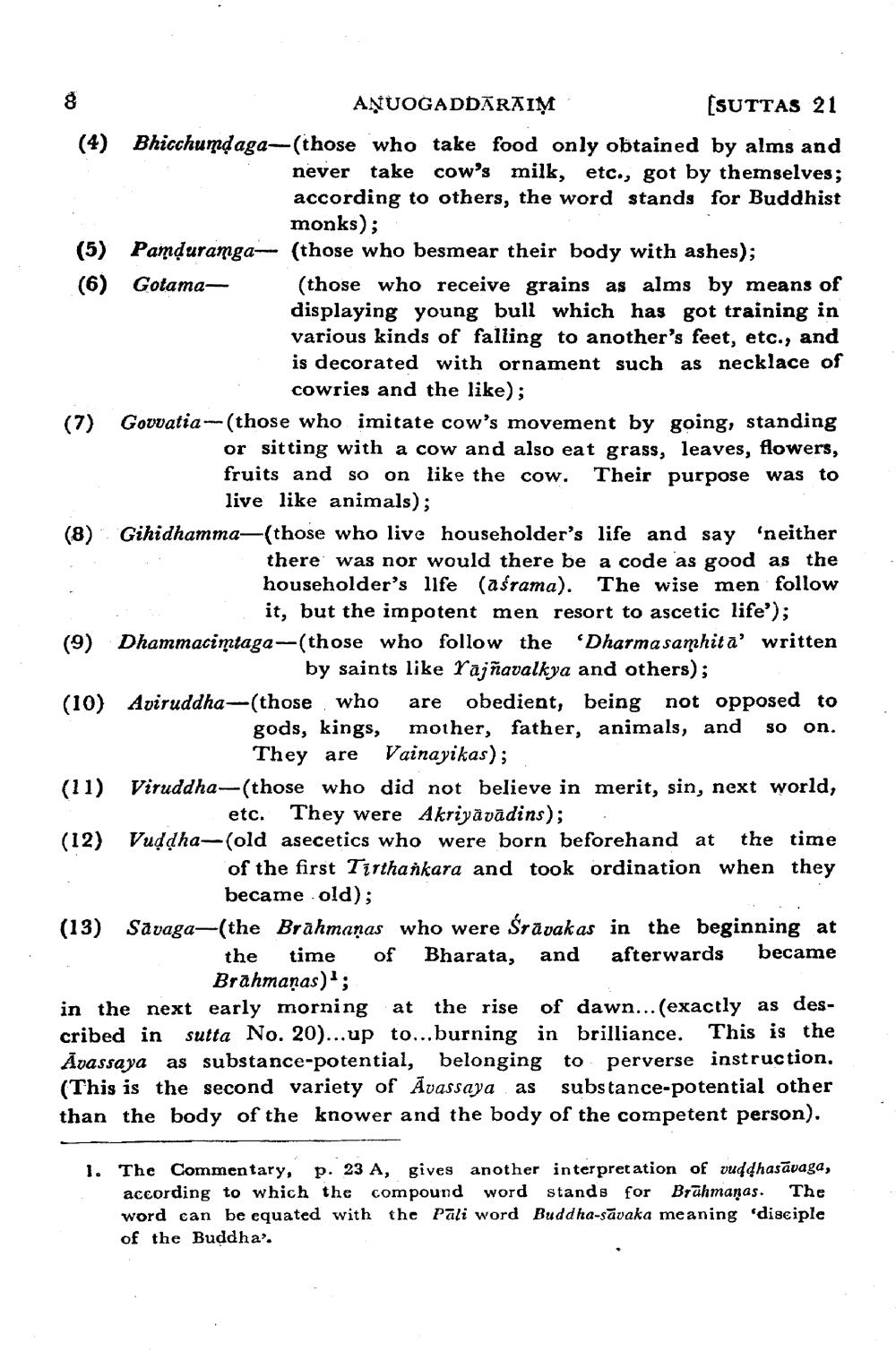________________
8
ANUOGADDARAIM
[SUTTAS 21
(4) Bhicchumḍaga-(those who take food only obtained by alms and never take cow's milk, etc., got by themselves; according to others, the word stands for Buddhist monks);
(5) Pamḍuramga- (those who besmear their body with ashes);
(6) Gotama
(7)
(8)
(those who receive grains as alms by means of displaying young bull which has got training in various kinds of falling to another's feet, etc., and is decorated with ornament such as necklace of cowries and the like);
Govvatia-(those who imitate cow's movement by going, standing or sitting with a cow and also eat grass, leaves, flowers, fruits and so on like the cow. Their purpose was to live like animals);
Gihidhamma-(those who live householder's life and say 'neither there was nor would there be a code as good as the householder's life (asrama). The wise men follow it, but the impotent men resort to ascetic life');
(9) Dhammacimtaga-(those who follow the 'Dharma samhita' written by saints like Yajnavalkya and others);
(10) Aviruddha-(those who are obedient, being not opposed to gods, kings, mother, father, animals, and SO on. They are Vainayikas);
(11) Viruddha-(those who did not believe in merit, sin, next world,
etc. They were Akriyavadins);
(12) Vuddha-(old asecetics who were born beforehand at the time of the first Tirthankara and took ordination when they became old);
(13) Savaga (the Brahmanas who were Śravak as in the beginning at the time of Bharata, and afterwards became Brāhmaṇas)1;
in the next early morning at the rise of dawn... (exactly as described in sutta No. 20)...up to...burning in brilliance. This is the Avassaya as substance-potential, belonging to perverse instruction. (This is the second variety of Avassaya as substance-potential other than the body of the knower and the body of the competent person).
1. The Commentary, p. 23 A, gives another interpretation of vuddhasavaga, according to which the compound word stands for Brahmanas. The word can be equated with the Pali word Buddha-sāvaka meaning 'disciple of the Buddha'.




